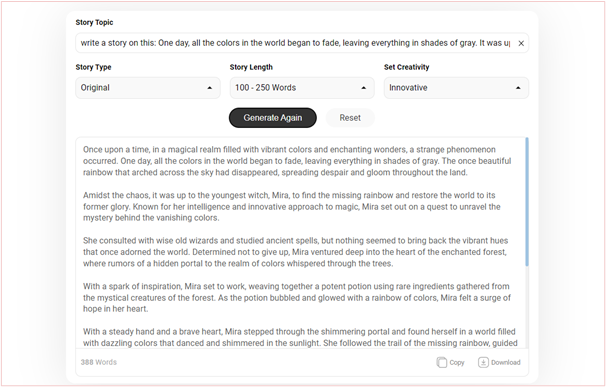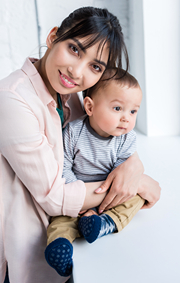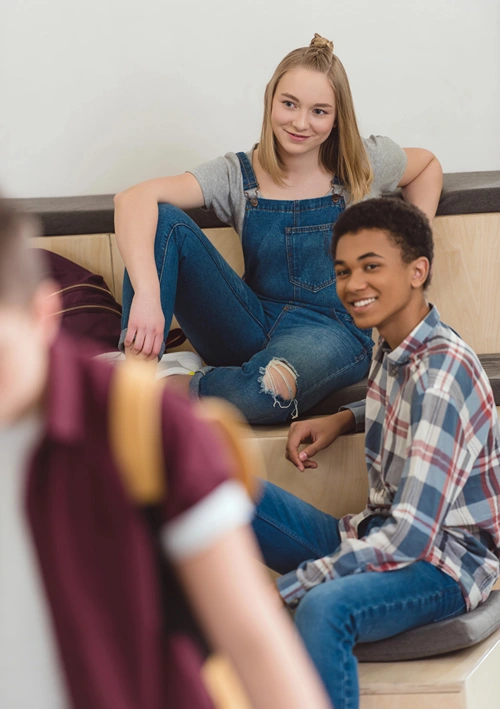Creative Storytelling Tips: How to Write Magical Tales for Kids
A fairy tale is a short fictional narrative that revolves around magical creatures, lands, and includes a moral lesson at the end. It belongs to the folklore genre. If you have ever read something that started with ‘once upon a time’ and ended with “…they happily lived afterwards’, chances are it was a fairy tale.
Although these kinds of stories are usually crafted for children, adults enjoy them, too. However, writing such stories requires some hardcore skills. Even if you don’t have them and want to write a tale for kids, the following tips and tricks can help.
Know Your Kid Segment
It is important to consider the readers in any form of writing, including tales.
However, for writing stories, one thing is clear: your major audience is kids. Right? Well, not yet; you have to consider their age groups and write accordingly.
For instance, if your story is for 4-7-year-olds, keep sentences simple and short, the plot easy to understand, and the characters lovable. However, if your audience is 8-12-year-olds, complex plots and moral puzzles can go well, too.
In addition, use relatable story themes, such as friendship, bravery, adventure, and kindness. Kids are more attracted to these kinds of themes.
Create An Appealing World
Kids’ minds are different from adults; they are more imaginative and curious to learn.
So, once you know your audience, ask yourself, what kind of magical story do you want to write? First, believe that everyone has a story within them. Let your imagination soar. Whether you want to focus on an intelligent princess who saves her kingdom or a brave prince who breaks an ancient curse?
You can split this phase into two steps:
- Create a world that is full of wonders
- Add marginal elements into that world
If you don’t want to go for a prince or princess, you can choose a magical forest, an underwater city, or a distant planet. Once done with the world, add new elements to it, such as unique rules, phenomena, places, flying carpets, and so on.
| Example: In a quiet village where everyone believed in ordinary things, there was a small garden where flowers whispered secrets to those who could hear. It was filled with glowing fireflies, their light flickering like golden dust, while the air carried the sweet smell of honeysuckle and the gentle sound of hidden streams. |
Keep this in mind: whatever world you choose, it should appeal to and engage the kids. While they read, it should take them to a new, imaginative world.
Think of Your Characters in Tale
After creating a world for your story, think of the necessary characters and their details to be focused on in the story, such as:
- Looks
- Personality
- Background — Are they from a royal family? Did their parents die? Are they married? Do they love someone?
- Flaw — Perfection is boring. So, give your characters relatable flaws or weaknesses to add some spice to the tale.
However, there is a way to create characters in the story.
Always start with the main character that kids can relate to and it has clear goals. It could be a brave child, a kind-hearted animal, or a cruel magician.
| Example: Lily, a girl who could communicate with animals, always had a squirrel perched on her shoulder, whispering the latest forest gossip. |
Next, add supporting characters who are fun, quirky, or mysterious. They can be talking animals, wise wizards, or mischievous fairies to add humor and depth to the story.
If it applies, bring in a villain. Make them not purely available but have gone through backstories and traumas that made them this way. The villain should have reasons for their actions. This can add complexity and teach kids about empathy.https://www.safesearchkids.com/this-is-why-storytelling-is-the-secret-of-every-great-kids-content-creator/
Add Some Ups and Downs in the Story
Now comes the most important part: the story.
When writing it, ask yourself a few questions:
- What will your readers be interested in this story?
- What details will you have to put in to keep your reader going on?
- How will you unfold the mysteries?
Remember, the most important part of the tale is the beginning. Try to hook the readers in via a problem or mystery. Create an event or situation that grabs attention, such as a lost treasure, a curse, an unexpected discovery, or a missing friend.
| Example: One day, all the colors in the world began to fade, leaving everything in shades of gray. It was up to the youngest witch, Mira, to find the missing rainbow. |
When pursuing the story, make sure to introduce magical elements gradually. Don’t reveal all the mysteries at once. Unfold the secrets a story holds as the story progresses.
Kids love unexpected turns in a story that surprises and delights them. So, you should introduce a plot twist that changes the direction and flow of the story. This technique shouldn’t be the entire focus of the story but an element to add to take an engaging turn.
| Example: Just as Leo thought he had found the secret door to the fairy realm; he discovered it was actually a portal to a world of talking animals! |
Try to Be Creative with the Details
A tale is built around creativity to spark engagement. Therefore, use language that is easy to understand for kids but rich in imagery. Make readers imagine the story’s scenes with the help of playful descriptions to give rise to wonder.
| Example: The dragon’s roar was as loud as a thousand thunderstorms, but his heart was as soft as a marshmallow. |
Another way to achieve this goal is by describing sounds, smells, sights, and textures to make the magical world communicative and come alive. For example, use phrases like “the soft whisper of leaves in the moonlight” or “the sweet scent of candy flowers.”
End the Story with Moral Lessons
A moral lesson is an important part of tales for kids.
Therefore, you have to end your story with a valuable lesson. The lesson should be possible and can be about friendship, bravery, kindness, honesty, or believing in oneself.
However, make sure the lesson complements the story. Make it feel natural and provide a sense of closure and satisfaction.
| Example: In a tale where a greedy king steals all the gold from his people, he learns that happiness cannot be bought with riches but comes from sharing and kindness. |
Don’t Forget to Use AI Story Generator
If you feel it is difficult to write a story yourself or you want to collect some ideas on your story topic before you start writing, an AI story generator can help you.
Instead of writing a story from scratch, you can use this tool to get a rough draft. Later, you can work on it to improve it further. This way of story writing is like working with a companion. While they offer you ideas, you build on them to get the most out of your time.
To use the tool, describe your story topic, select your story type, length, and creativity, and click on the Generate button. Copy the story or download it to work on it further.

Conclusion
Writing magical tales for kids starts with knowing your audience, their age, and interests. Write simple themes for younger kids and more complex plots for older ones.
Then, create an imaginative world full of unseen wonders, such as dark forests, talking animals, or hidden kingdoms. Develop relatable characters with unique traits and flaws, like a brave child, a talking squirrel, or a kind-hearted witch.
Introduce exciting twists, like a surprising discovery or a sudden problem, to keep the story engaging. Use vivid descriptions to make the story come alive with sights, sounds, and feelings.
End with a meaningful lesson about kindness, bravery, or friendship. If needed, use an AI story generator for inspiration to help you get started and refine your ideas.







 Begin Now for Free with
Begin Now for Free with 



